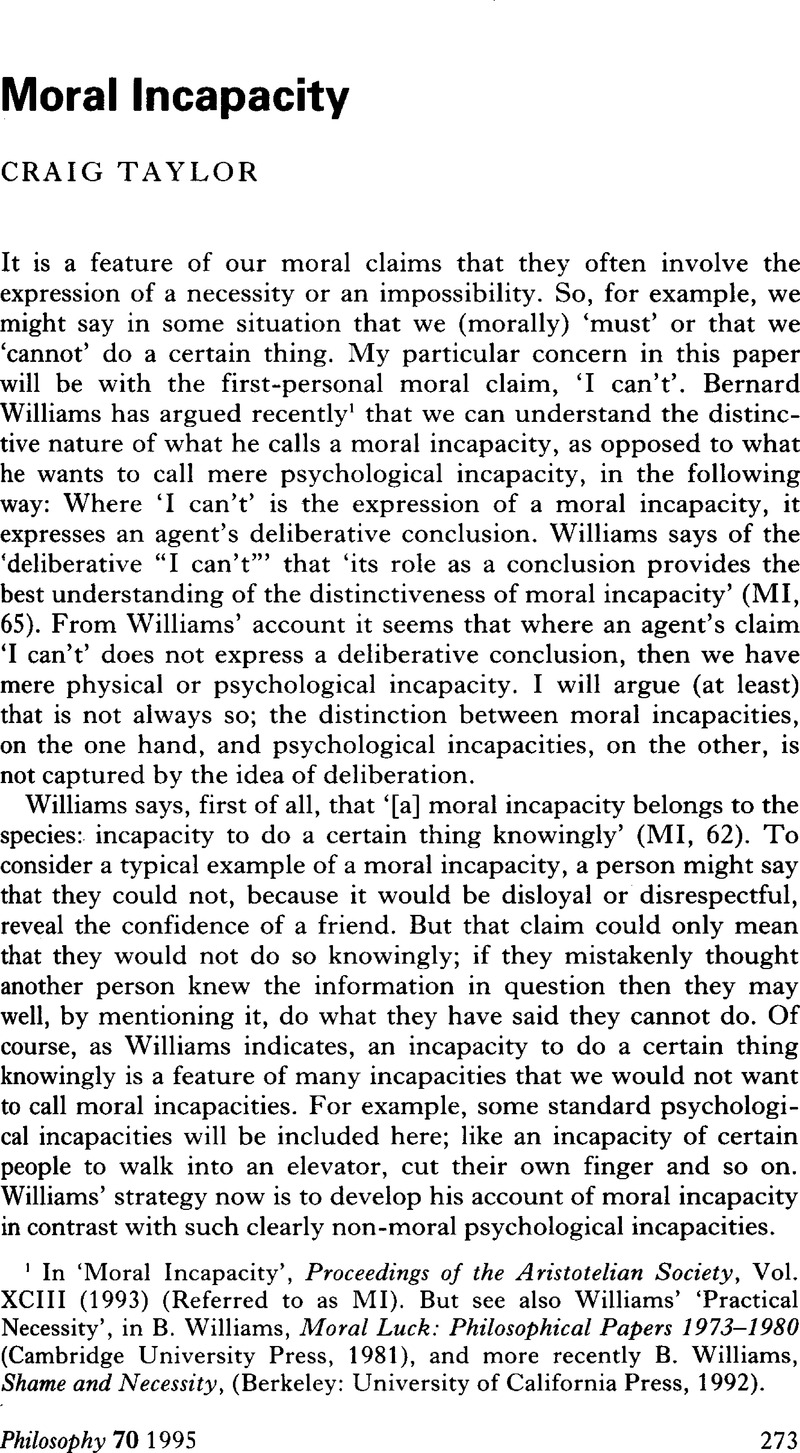Article contents
Moral Incapacity
Published online by Cambridge University Press: 30 January 2009
Abstract

- Type
- Discussions
- Information
- Copyright
- Copyright © The Royal Institute of Philosophy 1995
References
1 In ‘Moral Incapacity’, Proceedings of the Aristotelian Society, Vol. XCIII (1993) (Referred to as MI).Google Scholar
But see also Williams' ‘Practical Necessity’, in B., Williams, Moral Luck: Philosophical Papers 1973–1980 (Cambridge University Press, 1981), andGoogle Scholar
more recently B., Williams, Shame and Necessity, (Berkeley: University of California Press, 1992)Google Scholar
2 For a similar account of moral necessity, compare what Peter Winch says in ‘The Universalizability of Moral Judgements’ (in Winch, P., Ethics and Action, (London: Routledge & Kegan Paul, 1972)).Winch argues there against what he call the universalizability thesis in moral judgements that, ‘if A says “X is the right thing for me to do” and if B, in a situation not relevantly different, says “X is the wrong thing for me to do”, it can be that both are correct’ (164). Of course, this is to say, as Winch notes, ‘deciding what one ought to do is not a matter of finding out what anyone ought to do in such circumstances’ (168). But at the same time Winch wants to claim that there is here nevertheless a ‘genuine sense in which [deciding] does involve the notion of “finding something out”‘ (168). Concerning what one finds out here Winch offers the following thought: It seems to me that what one finds out is something about oneself, rather than anything one can speak of as holding universally (168). Though the above position is framed in terms of moral ought, rather than moral necessity, Winch goes on to make it clear that he is making a more i general point about a range of moral modalities including claims about what an agent finds morally possible or impossible to do. Winch's origi- i nal example concerns Melville's depiction of the court-martial of Billy Budd by his captain, Vere, in Billy Budd. The point of using that exam- ple was to illustrate how it may be that one person, Vere, may find it morally possible even necessary to hang a man innocent before God, while another, Winch, may find it impossible.Google Scholar
3 The context here being, we will remember, Luther being offered the opportunity to renounce his writings, his expression of the beliefs and commitments that were his life, in front of the Emperor Charles V and an; assembly of church and state offig52:996cials
4 In Moral Luck, op. cit. (Referred to as IER).Google Scholar
- 7
- Cited by


